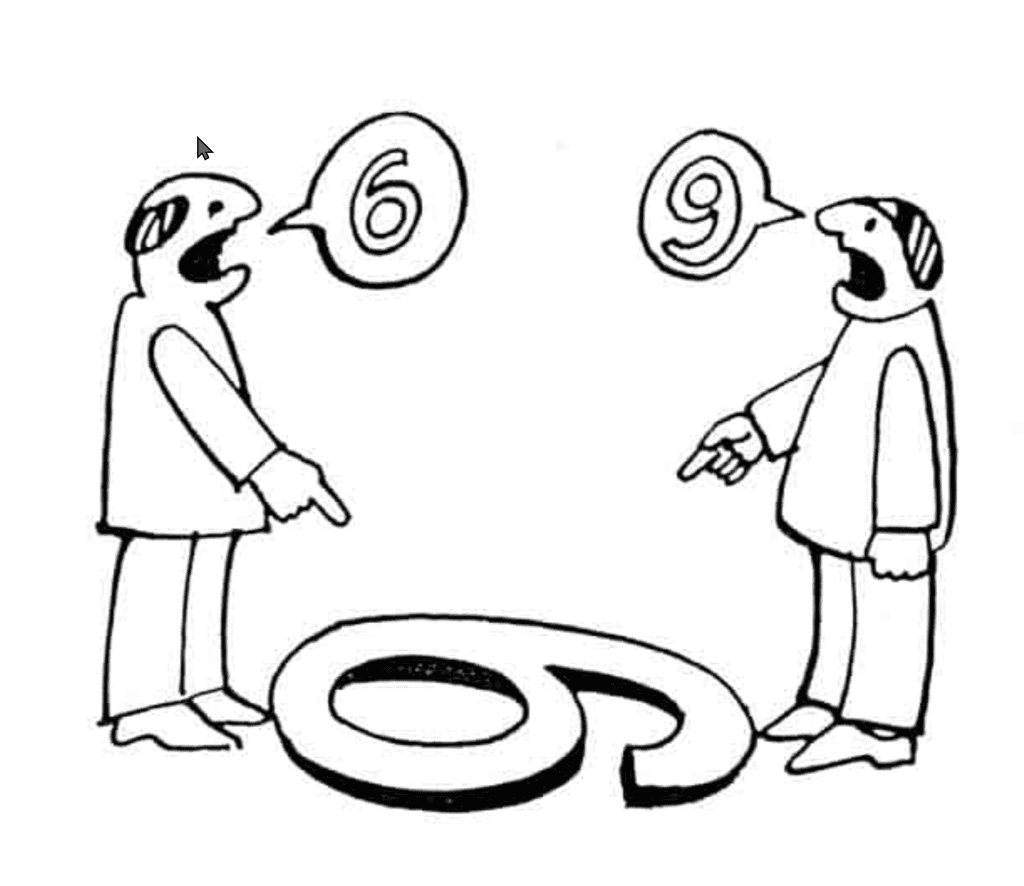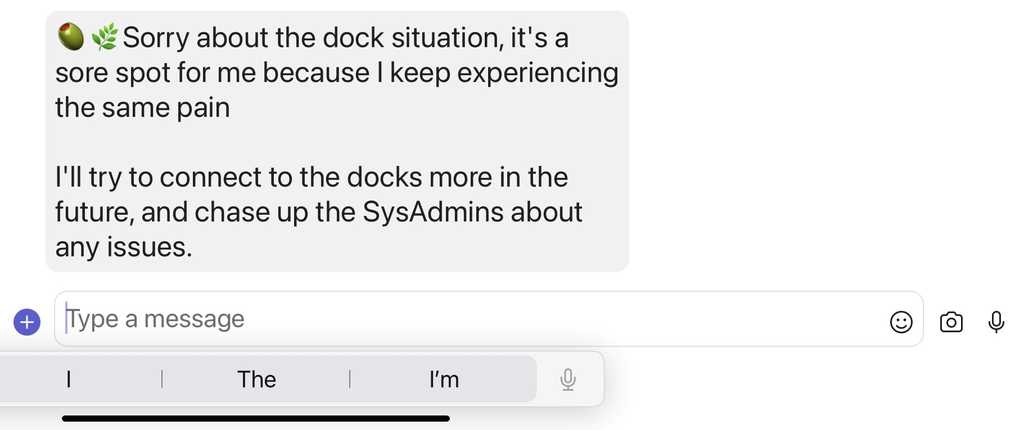Conflict - Do you fix problems quickly?
Last updated by Brady Stroud [SSW] over 1 year ago.See historyMost people do not like conflict, and so some people may shy away from dealing with a potentially uncomfortable situation, rather than addressing the problem.
When someone brings to your attention that they are not happy with something, it's important to address it so that it doesn't happen again in the future. Keep in mind, this problem is particularly important for time sensitive tasks.
I am shocked I still have miscommunications with my wife almost everyday... something minor seems to pop up, and that's with someone I get along with, understand and have been married to for 20 years.
Many people speak English as a 2nd language. I believe miscommunications are not limited to the English language... it's a human thing... different experiences, intentions, and expectations will end up with different interpretations of words... so it is more uncommon to have 2 people understand each other perfectly on an issue. If a day goes by without a miscommunication, that would be a shock.
Have ❤️ and patience.
Adam Cogan, SSW

Scenario - Missing a deadline
Consider a scenario where your Product Owner is unhappy that you missed a deadline, although you thought there were good reasons for missing it. Don't get bogged down in the justification for why it happened. Instead, acknowledge what happened, and drop everything (within reason) to prioritize this work until it's done.
Do not ignore the problem (by continuing business as usual) as it will only escalate. Fix it now (by prioritizing this work)!
An issue ignored is a 😕
An issue actioned after a reminder is a 👍
An issue ignored after a reminder is a 🚨
Adam Cogan, SSW
Always find out the priority and expectation of a task's deadline. If you've been reminded about a task you thought was of lower priority, that is a good time to have that conversation - better late than never 😊.
Read through having professional integrity (AKA be a person of your word).
Common Symptoms
Unresolved conflict is bad enough with colleagues, and you can be sure if it's happening with colleagues, it's happening with clients too. Some consequences of unresolved problems with clients are:
- Dissatisfaction and loss of trust
- Cancelled bookings
- Unpaid invoices
If you are getting warning signs such as the above, you need to escalate to your manager ASAP!
Tips
- Being chased - If someone has followed you up, get back to them as soon as possible with a response as it shows that you care. If you get a second follow up on the same issue, it's generally way more important
- Communicating progress - If you are not able to fix the problem immediately, let the person know how long the issue will likely take to fix
- Fix bugs first - Bugs become more expensive and complex over time
- Make client complaints a positive experience - Retain customer loyalty
Avoid bad blood
If a conflict was unpleasant, it's often a good idea to offer an olive branch after... by sending a quick message later on to clear the air. Emojis (e.g. 🫒🌿) are a great way to lighten the mood, you could even indicate you're giving them an olive branch.
When to push back
When you're in the heat of the battle, it is often not the right time to push back. When a team member needs to get something done, you should work as a team to get it done.
Bugs or things not working are things people expect actioned quickly. Therefore when not fixed, people follow up such items. If they do, fix them quickly.
You can work to resolve any conflict afterwards.
- One-off tasks - Most of the time, even if you're unhappy with some work you've been given, but it's a one-off task, don't stress the small stuff, and just get it done
- Recurring tasks - However, if it's something you're being asked to do repeatedly, and you're unhappy with it, still do that task right away, but make sure you clearly communicate your concerns later on, when the pressure's off
Tip: If after raising the problem, you are still unhappy, consider sending a "For the record email"
- Do you know that it's bad to win the argument but lose the client?
- Do you find the positive in the decisions?
- Do you speak up about unfairness?
- Management - Do you fix bugs first?
- Office environment - Do you label broken equipment?
- Do you fix bugs with a phone call?
- Do you know how to report bugs and give suggestions?
- Do you address the elephant in the room?
- Do you know that it's bad to win the argument but lose the client?
- Do you find the positive in the decisions?
- Do you speak up about unfairness?
- Management - Do you fix bugs first?
- Office environment - Do you label broken equipment?
- Do you fix bugs with a phone call?
- Do you know how to report bugs and give suggestions?
- Do you address the elephant in the room?




